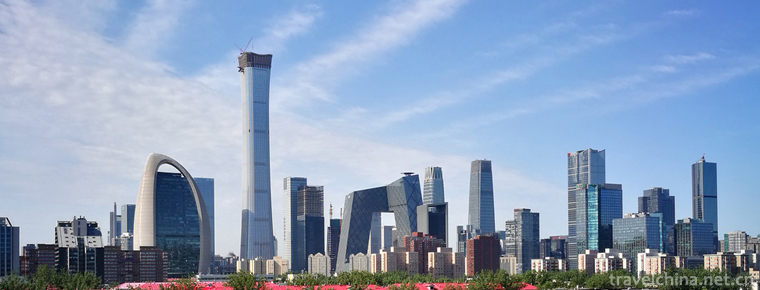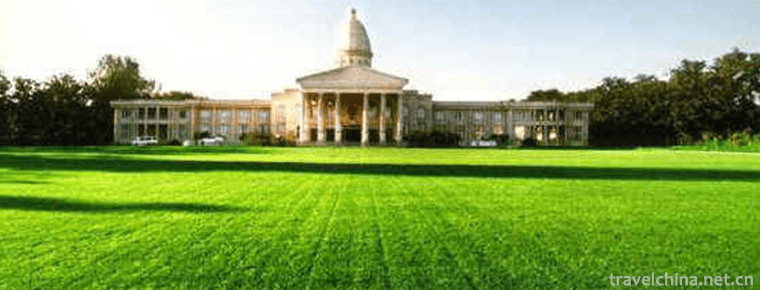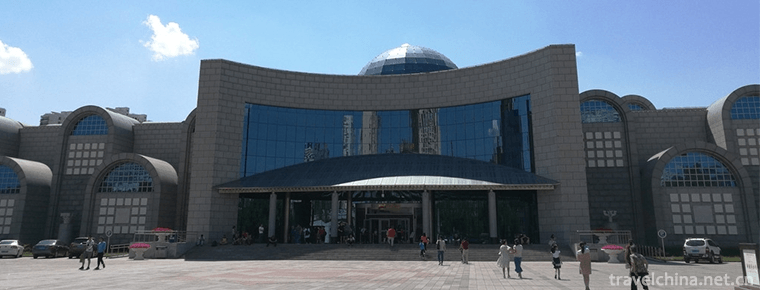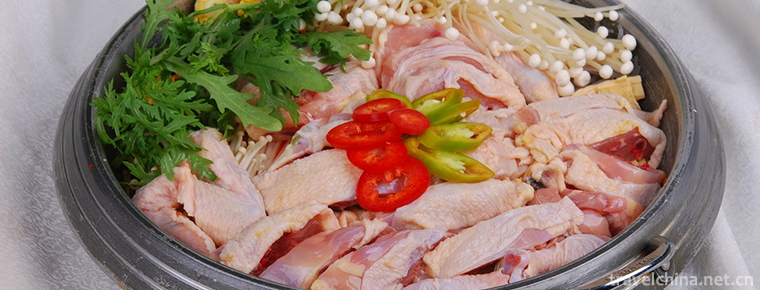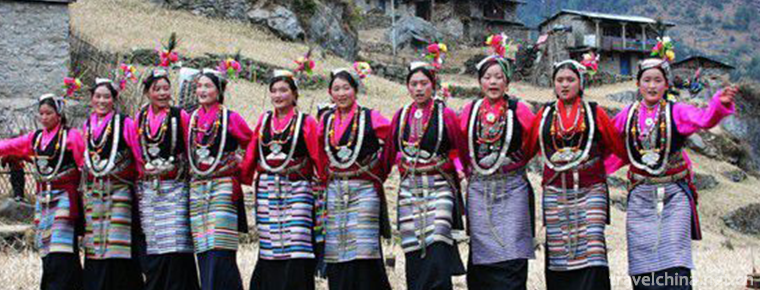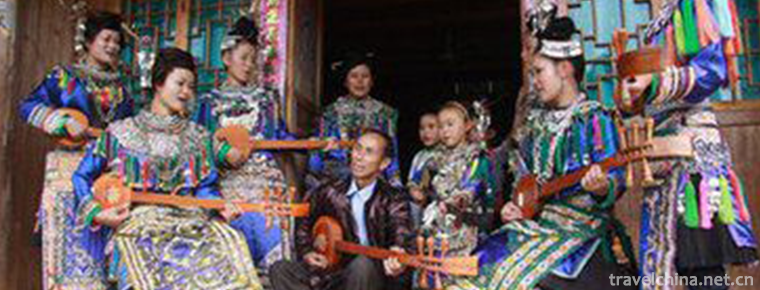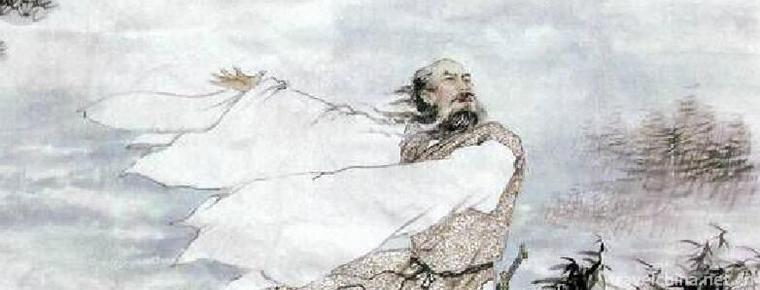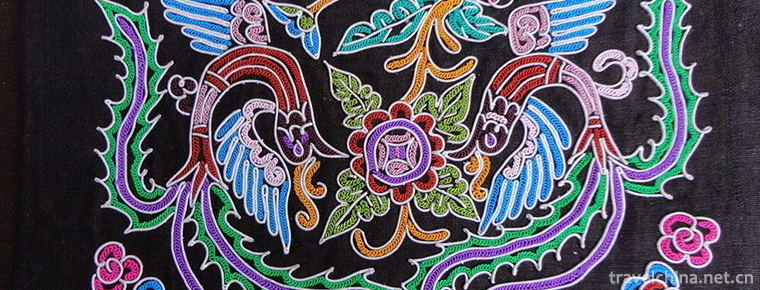Folk Stories of Zouma Town
Folk Stories of Zouma Town
Folk stories of Zouma Town, Jiulongpo District, Chongqing City, are spread in Zouma Town. The exact age of its origin can not be verified. However, the Zouma Town was established in the late Ming and early Qing Dynasties and flourished soon. The story should be developed synchronously with it. It has a history of at least four to five hundred years. Zouma Town's local folktales are rich in content, diverse in types and huge in number, with a large number of narrators. Mainly includes myths and fairies, legends of scenery, animals and plants, folklore, life stories and so on.
In 2006, it was selected as the first national intangible cultural heritage list .
Historical Origin
Zouma Town formed a market in the mid-Ming Dynasty. Before the emergence of Railways and highways, it was a post station on the main road from Chongqing to Chengdu. It was also known as "Three Counties with One Foot" because it was near Bishan in the West and Jiangjin in the south. In the old days, people were tired of traveling from Chongqing to the horse, so people chose to stay on the horse, and guests from all walks of life exchanged their experiences and stories. Over time, they melted into the local memory. Folk song stories and wild history anecdotes have been handed down from generation to generation, creating today's "home of folk tales", where an annual open-air storytelling meeting is held.
The most famous is Wei Xiande, one of the "Ten Chinese Folk Storytellers". He began to roam around with his father at the age of 14. At the age of 22, he was able to tell more than 5,000 folk stories. After liberation, he returned to the old household farmer, after which he sorted out his mind and kept more than 1500 stories with the cultural color of Bayu. In 1998, the United Nations Educational, Scientific and Cultural Organization (UNESCO) first awarded 10 artists including him as "Chinese Folk Storytellers" when investigating "representative works of oral and intangible heritage". Among them, Wei Xiande ranked first with the ability to tell more than 1500 stories. He and his brother Wei Xianfa, each of whom can tell more than 1,000 folk stories, are known by UNESCO experts as the "Green Brothers of China". Their stories have been published. In addition, there are many folklorists who can tell more than 500 folk stories. It can be seen that the ancient towns in Chongqing have rich folk tale resources, carrying a heavy traditional culture.
Folk stories in Zouma Town are rich in content, diverse in types and huge in number, with a large number of narrators. Mainly includes myths and fairies, legends of scenery, animals and plants, folklore, life stories and so on. These types of stories contain a wide range of cultural information, such as the legend of Ba totem dragon and snake, which is an important relic of ancient Ba culture. When compiling the "Three Sets of Integration of Chinese Folk Literature" in the 1980s, 10,915 catalogues of folk stories were collected, 9,714 records were completed, more than 3,000 ballads, 4,000 proverbs, 4,000 allegorical sayings and other sayings were recorded. There are 316 folklorists in the town, including 2 who can tell 1000 stories, 3 who can tell 500 to 1000 stories and 10 who can tell 200 to 500 stories.
primary coverage
Zouma Town is a town in Jiulongpo District of Chongqing City. There is a folk story created and passed down orally by people who take "horse-riding" as their profession. People usually call it "horse-riding story". The exact age of the origin of the horse-walking story is impossible to verify, but the horse-walking track was established in the late Ming and early Qing Dynasties and soon flourished. The story should develop with it. It has a history of at least four or five hundred years. The ancient town of Chongqing has attracted businessmen from south to north since ancient times, and folk tales have also been created and exchanged. Zouma Town, located in the west of Jiulongpo District, has the reputation of "Town of Folk Literature".
In the long history of inheritance, Folk Stories in Zouma Town have been enriched and developed with rich content, diverse types, huge number and numerous narrators, mainly including myths and fairies, folklores, animal and plant legends, folklore legends, life stories and other types. These stories contain a wide range of content and rich content. Ancient cultural information, such as the legend of the dragon and snake totem of the Ba people, is an important relic of the ancient Ba culture. The number of stories is quite large. When compiling the "three sets of integration of folk literature", 10 915 catalogues of folk stories were collected, 9714 actual records were completed, and more than 3,000 folk songs and 4,000 proverbs were recorded. There are more than 4000 allegorical sayings and proverbs. Record these stories, songs, proverbs and other audio tapes 450 boxes, more than 7 million words of written materials. There are 316 folklorists in the town. Among them, there are 2 people who can speak 1000 types, 3 people who can speak 500-1000 types and 10 people who can speak 200-500 types.
Literary Characteristics
1. It contains unique cultural information.
Besides the general types of folktales, such as myths and fairies, folklores, animal and plant legends, folklore legends and life stories, there are also unique cultural information, such as the legends of Ba people's totem dragon snakes. As an important relic of ancient Ba culture, the number of such stories is quite large.
2. Describe the diversity of opportunities and occasions
3. The Multiplex of Story Composition
4. The coexistence of native culture and foreign culture.
Inheritance Significance
In 1990, Zouma Town was named "Town of Folk Literature" by Chongqing Cultural Bureau; in 1992, the industrial and rural areas were named "Village of Chinese Folk Stories"; in 1998, the United Nations Educational, Scientific and Cultural Organization (UNESCO) and the Chinese Association of Folk Literators and Artists jointly awarded Wei Xiande the title of "Chinese Folk Storyteller" (a total of 10 people in the country).
The story of walking horses is facing a serious crisis. The main problem is the lack of inheritance. Rescuing and protecting the stories of walking horses can not only enrich people's cultural life, but also provide research materials for anthropology, culture, religion, ethnology and dialects.
In the west, because the development is slower than that of the coastal areas, there are more things left in terms of folklore and traditional culture. Zouma Town and Jiulongpo District are very active and effective in this work, which is very rare. It has high research value and historical and cultural value for social anthropology, culture, religion, ethnology, dialect and other disciplines.
The state attaches great importance to the protection of intangible cultural heritage. On May 20, 2006, Folk Stories of Zouma Town were approved by the State Council and listed in the first batch of national intangible cultural heritage lists. On June 5, 2007, Wei Xiande of Jiulongpo District, Chongqing City, was confirmed by the Ministry of Culture as the representative successor of the cultural heritage project, and was listed in the first batch of 226 representative successors of national intangible cultural heritage projects.
Listing of Stories
Autumn Scenery of Wunufeng
Beautiful Five Female Peaks
The beautiful Five Female Peaks spread many magical and moving stories among the people.
Since the seven fairies went down to earth, they angered the Jade Emperor and the Queen Mother, and took the seven fairies back to the Heavenly Palace, they were strictly guarded against leaving the Heavenly Palace. However, fairies have been longing for a free and comfortable life in the world. The seven sisters gathered together this day, secretly discussing how to find an opportunity to go down again. The eldest brother said, "Mother's queen has a big birthday every year. Then all the gods will bring the best gifts to the Heaven Palace to celebrate her birthday. Why don't we take this opportunity to go down to earth, once we can take back the treasures of the world and present them to the mother, and secondly, we can take the opportunity to play in the world for a few more months, which is the beauty of both?" The sisters thought it was a good idea, but what is the most precious thing in the world? The elder sister said, "I heard that there are thousands of ginseng in Changbai Mountain, and they will live forever. Why don't we go and ask the mother for permission? After several discussions, the sisters went to see the Queen Mother and explained their intention.
The Queen Mother listened to her daughters'requests and lived. She thought to herself: I heard that the thousand-year-old Ginseng in Changbai Mountain had the power to bring people back to their childhood. But there is a family law, there are rules, fairies are not allowed to go down. Who is to be sent? If the person sent is unreliable and something happens in the middle of the way, is it not a bad thing?"The Queen Mother feels that she is old enough to eat a thousand-year-old ginseng on her birthday, which is also her own creation. Then he called seven daughters to his side and said, "Since you are sincerely filial to your mother, I will make an exception once and promise you to go to Changbai Mountain to search for thousands of ginseng. However, Lao Seven has violated the rules of heaven and is not allowed to go out of the palace again. Lao Six stays with her mother." Then he ordered his eldest daughter to lead four younger sisters down to earth.
The next day five fairies waved their long sleeves and drifted towards Changbai Mountain. Along the way, they were like birds flying in cages. Before they knew it, they floated over sixty-six ridges and ninety-nine mountains. When they passed the Laoling Mountains, they were fascinated by the scenery. When the sisters consulted, they settled down here. It was not too late to plan to visit for a few days and then to search for thousands of ginseng. So the five fairies dressed up as village nuns to collect medicines. When they met, they said they were going up to the mountains to collect medicines. When no one was there, they stole to the riverside to dress up and take a bath and play in the river.
During this period, the sisters often met a warrior named Gaotai in a nearby village. Gaotai gets up early and returns late every day, and passes by here. They learned that Gaotai's parents had long since passed away. Now they live alone. They are kind-hearted, hard-working and brave. Everyone in the village likes to ask him for help in everything. One day, the sisters pretended to be lost in picking medicines on the mountain. They stopped the platform and asked him to lead the way up the mountain together. Gaotai Lengding was stopped by the five big girls in front of her. She blushed and blushed at the moment. She wanted to hide too late. She thought to herself: A young man and a big girl were together. What's the business? The fairy saw through the idea of Gaotai and pretended to be sad and anxious. She said, "My old mother is very ill. I heard that there are thousands of people here who can cure her." Our sisters are not familiar with the way up the mountain, please ask Big Brother for help! "Gaotai listened, moved by her five filial piety, and said that the mountains here are high and dense, often there are beasts, how can I see death, can't help? So I asked my sisters to go up the mountain together to find ginseng.
After that, Gaotai and five sisters, walking against the stars every day and stepping on the moon, returned in less than half a month, finally found a thousand-year-old ginseng. My sister's birthday is coming soon. Five fairies left Gaotai and thanked each other so much that they reluctantly returned to the Heavenly Palace.
Since the five fairies found a thousand years of ginseng, the sisters have been particularly spoiled in front of the Queen Mother, and they are not as strict as they used to be. However, the sisters often miss the platform in their hearts, and often secretly go down to Greenshui River to wait for the platform road to pass by, so that they can meet thousands of people. But I haven't met you for many days. On this day, the five sisters came to the green water river again, and waited and waited. Seeing that the sun was about to get stuck in the mountains, the elder sister said, "It's not too early. We'd better go back, otherwise we can't go back when the gate of heaven closes." But the Five Fairies said, "Wait a little longer, maybe you can see it." Speaking of this, I saw a tall platform with bows and arrows on its back, carrying prey on its shoulders, and coming out of the woods across the Green River. By this time the sun had set. The five sisters hurried up in high spirits, asked questions, talked, laughed and laughed. They were so happy that they had forgotten about their return to heaven.
Suddenly the sky was lightning and thunder, and a strong wind broke out. After the Tianmen Gate was closed, the Queen Mother found that her five daughters had disappeared. She sent Tianbing Tianjun to look for them everywhere. It was annoying to learn that the five fairies had stolen down to meet with Gaotai. The Jade Emperor also blamed her for coming down. She ordered Tianbing Tianjun to demote her five daughters to the world and leave them in stone bodies for ever. 。 The thunderstorm stopped and the five fairies disappeared. Five peaks rose beside the Lushui River. Afterwards, the people learned that the five village guys who collected medicine were originally five Fairies in the Tiangong. They named the five peaks "Wunufeng".
Legend has it that the tallest one of the five fairies is Tiannu Peak, which makes the place grow dense forests and precious flowers and trees. All the fairies gather here one after another to protect the people and the soul, and make the people here live and work in peace and prosperity.
Heritage figures
Wei Xiande, an elderly man living in No. 59, Zouma Street, the hinterland of Chongqing, is closely related to telling folk stories and singing folk songs. He is called the king of folk stories by the local people. UNESCO and the Chinese Association of Folk Literatures and Artists awarded him "Ten Chinese People". Storyteller. Wei Xiande tells many kinds of folk stories with wide subjects, rich content, plain language, popular, easy to remember and easy to pass on, vivid image and outstanding personality. He can tell 1045 folk stories, sing 433 folk songs, recite 676 folk proverbs and 271 allegorical sayings. Chongqing Publishing House has published a collection of Wei Xiande's folk stories for him.

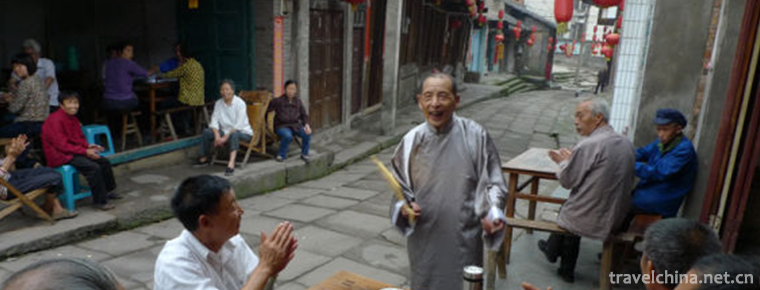
-
Shenyang Green Island Tourist Resort
Located in Tonggou Township, Sujiatun District, Shenyang City, 15 kilometers away from Shenyang City, Green Island Tourism Resort is a comprehensive multi-functional tourist area .
Views: 434 Time 2019-02-08 -
Museum of Xinjiang Uygur Autonomous Region
The Museum of Xinjiang Uygur Autonomous Region, located at No. 132 Northwest Road, Urumqi City, is a provincial comprehensive geographic museum..
Views: 230 Time 2019-02-25 -
Ginseng Chicken Hotpot
Wash ginseng, boil it in a little water, take out slices, and cook it in the original pot for 15 minutes. Still soak it in the original soup. All the above ingredients except hen nuggets and ginseng s.
Views: 239 Time 2019-03-24 -
Chentang Sherpa Singing and Dancing
Chen Tang Sherpa Song and Dance is a traditional folk song and dance in the Sherpa community of Tibet. Accompanied by "Zhanlie" (Six Strings) and "Biwang" (Huqin)..
Views: 119 Time 2019-04-16 -
Construction Techniques of Wood Construction of Dong Nationality
Dong's wood construction and construction skills, the traditional architectural skills of Sanjiang Dong Autonomous County, Guangxi Zhuang Autonomous Region, one of the national intangible cultural her.
Views: 211 Time 2019-04-28 -
Dong Pipa Song
Dong Pipa song is distributed in the southern dialect area of Dong nationality, which can be divided into lyric and narrative Pipa song. Its singing content almost covers Dong history.
Views: 118 Time 2019-04-28 -
The Dragon Boat Festival
Dragon Boat Festival, also known as Dragon Boat Festival, Double Boat Festival, Midday Festival, Dragon Boat Festival, Zhengyang Festival, Bath Orchid Festival, Tianzhong Festival,.
Views: 99 Time 2019-04-28 -
Jiali Folk Stories
On May 23, 2011, Jiali Folk Stories were approved by the State Council to be included in the third batch of national intangible cultural heritage list..
Views: 379 Time 2019-05-05 -
Aquatic horsetail embroidery
Horsetail embroidery is a special embroidery technique inherited from generation to generation by Chinese aquarium women, which is the oldest and most national characteristic. It takes horse tail as a.
Views: 131 Time 2019-06-16 -
Beijing Technology and Business University
Beijing University of Industry and Commerce is a multi-disciplinary university in Beijing. It was approved by the Ministry of Education in June 1999 by the merger of Beijing Institute of Light Industr.
Views: 395 Time 2019-09-06 -
Neijiang secondary industry
By the end of 2019, there were 329 Industrial Enterprises above Designated Size in Neijiang City, and the added value of industries above designated size increased by 9.5%. The added value of the five traditional pillar industries increased by 9.8%, including.
Views: 332 Time 2020-12-16
